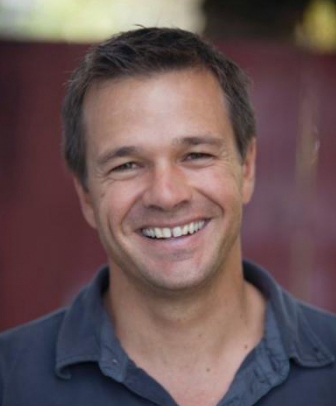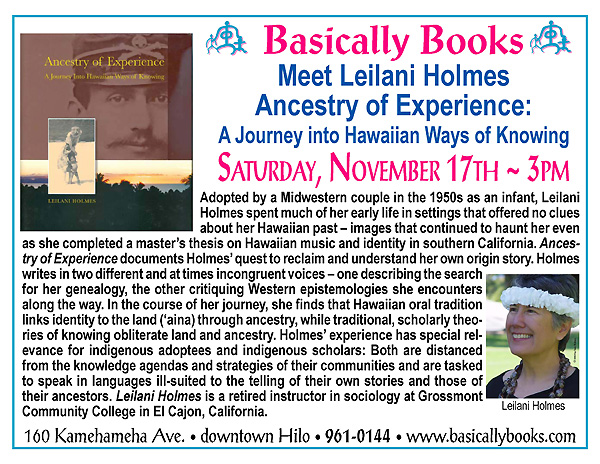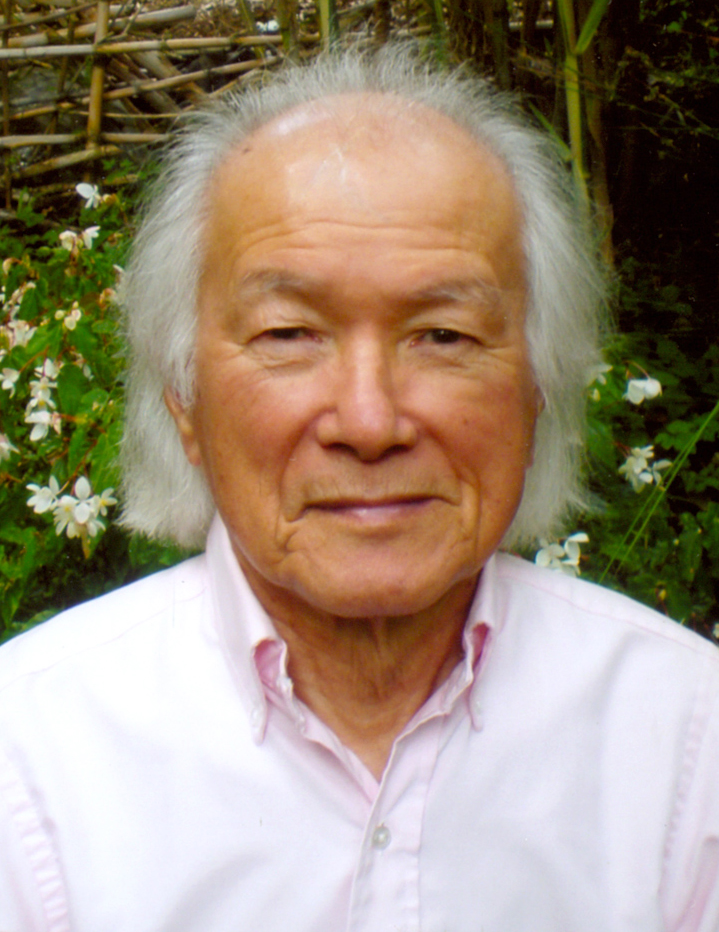 Originally this post was a way to mark this month’s Asian/Pacific American Heritage Month by sharing personal memories from an editorial perspective of a pioneering Asian American literary icon, Milton Murayama. It has grown to include other remembrances from a marketing perspective. We are all proud to be the publisher of his bestselling novels.
Originally this post was a way to mark this month’s Asian/Pacific American Heritage Month by sharing personal memories from an editorial perspective of a pioneering Asian American literary icon, Milton Murayama. It has grown to include other remembrances from a marketing perspective. We are all proud to be the publisher of his bestselling novels.
Masako Ikeda, Acquisitions:
I only met Milton Murayama once, at the Asian American studies conference held in Honolulu in 1991. I tagged along with Sharon Yamamoto, who acquired his manuscripts for Five Years on a Rock and then Plantation Boy. Nothing at that meeting was particularly memorable as I sort of stood in the background, but I ended up enjoying serving as his managing editor for those two books. We wrote letters back and forth and continued to do so even as the century changed. Most of the time all he said in his letters was that he wanted to buy copies of his books or he was writing a new book, which wouldn’t be finished for a while.
After Five Years our production department held onto an old computer drive knowing that Milton had not updated his system and refused to do so. Our marketing staff coaxed him a number of times: “Milton, I’ll help you set it all up.” He kept sending me hard copy manuscripts with perforations on both ends along with five-inch floppy disks. The manuscript wasn’t complete so he wanted everything back, including the floppy disks, which he couldn’t find anymore. Right before he sent the 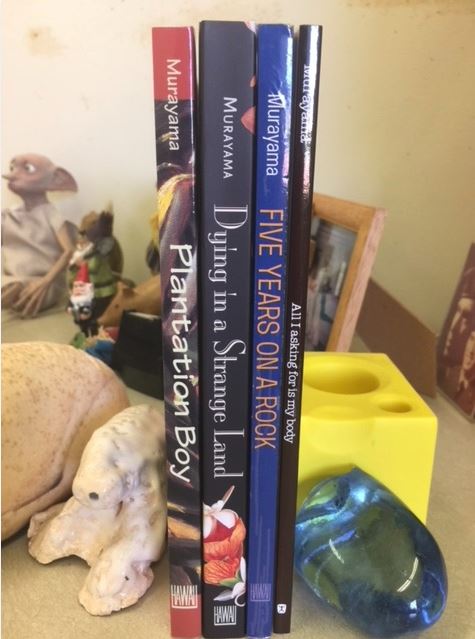 very final manuscript, which eventually became Dying in a Strange Land, we had gotten rid of the drive, and there was no way to read his WordPerfect files. I ended up asking our Production staffer to keystroke everything, which she did in three days.
very final manuscript, which eventually became Dying in a Strange Land, we had gotten rid of the drive, and there was no way to read his WordPerfect files. I ended up asking our Production staffer to keystroke everything, which she did in three days.
Communication with Milton was always interesting and often a little strange. He’d call to complain about the copy editor who didn’t understand that “Pidgin English doesn’t have ellipses points, or letter spaces in between.” He would also hesitate to say “Okay bye” and hang up the phone, so our conversation would go on for a long time with several seconds of dead silence breaking our talks in the most uncomfortable way.
Milton passed away in July 2016, and I didn’t know it until a month later when we saw the obituary in the Sunday paper. I felt guilty for not staying in touch. I do think of him quite often just as I think about Sharon, his true editor, whose passing was almost fourteen years earlier.
Steven Hirashima, Marketing:
My fondest memories of Milton would be visiting his fudge brown three-story home in the hillside area of Glen Park of San Francisco. Whenever I was in town I would always make a point to book a visit. The ritual was always the same. I would call to say I’m leaving the hotel and heading for the Union Square BART Station. Once at Glen Park, I would call to say I arrived and no more than five minutes later Milton would arrive in his old Toyota and we would head up the steep and winding road to his “retreat in the hills.”
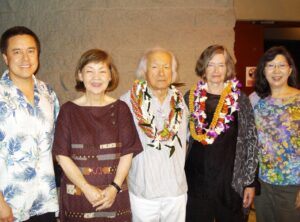
Overlooking the flatlands of the city with Candlestick Park and SFO to the west, I would always be given a tour as to what was updated or repurposed around the house since my last visit (the actor Lou Diamond Phillips’s childhood family had been a previous neighbor), from a newly reapportioned sunroom downstairs to a section outside with a bed of spring flowers to Milton’s designated writing room where tucked in a corner would be his antique word processor (a Commodore 64), which I almost convinced him to ditch in favor of a newfangled Mac but he never wavered and remained forever faithful to his trusty machine.
Any trip to the Murayamas would invariably end in the kitchen where Milton and Dawn were the most gracious of hosts. We would often gather around the large formal dinner table for spirited conversation from his next book project or his time in the 442nd, feasting on a bowl of delicious Alaskan King crab legs and steamed garlic brussels sprouts, masterfully prepared by Milton only minutes before. Looking back, they were wonderful and precious times. How I long for another afternoon with Milton. Until then, God Speed and Aloha.
Carol Abe, Marketing:
My very first encounter with Milton was in 1975, the year his original edition of All I Asking for Is My Body published, the green one with the bamboo forest on the cover and an overly large “$3” printed on the back 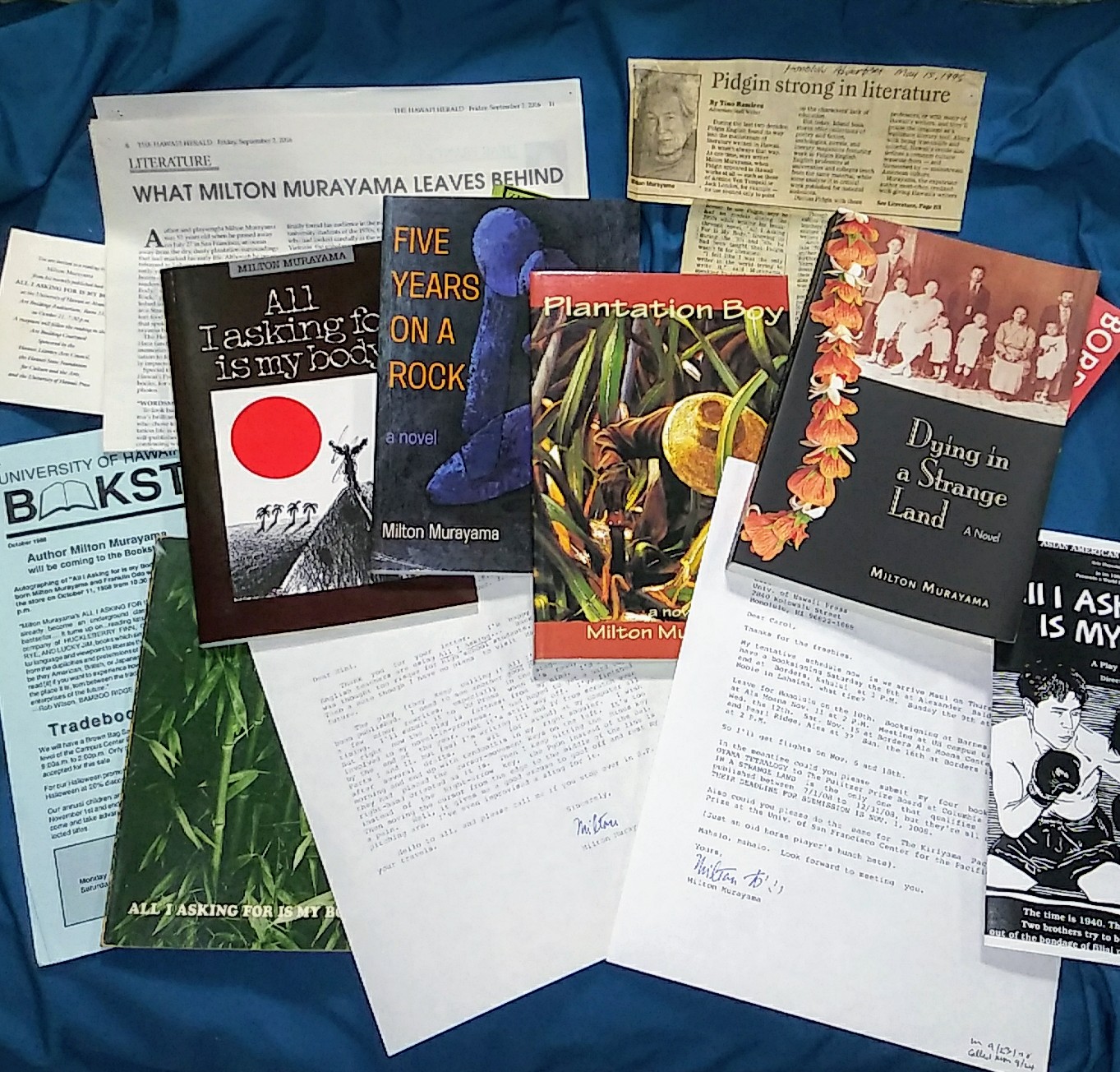 cover. He and wife Dawn lined up signings at Honolulu Book Shops, at which I was a bookstore clerk (we weren’t called “booksellers” until twenty years later). Of course I bought a copy with my generous employee discount and had it signed, but didn’t otherwise have a personal connection to him. Jump to 2008: I’d been at UH Press for ten years and we released Milton’s fourth and final novel in his tetralogy about the Oyama family. Steve Hirashima had switched to managing our Asian studies list and I did the same for our Hawai‘i, Pacific, and Asian American titles.
cover. He and wife Dawn lined up signings at Honolulu Book Shops, at which I was a bookstore clerk (we weren’t called “booksellers” until twenty years later). Of course I bought a copy with my generous employee discount and had it signed, but didn’t otherwise have a personal connection to him. Jump to 2008: I’d been at UH Press for ten years and we released Milton’s fourth and final novel in his tetralogy about the Oyama family. Steve Hirashima had switched to managing our Asian studies list and I did the same for our Hawai‘i, Pacific, and Asian American titles.
Dying in a Strange Land had a pub date of June but Milton called and said he would wait to visit in the fall, when it’d be cooler, and he only wanted to do low-key promotion of a few bookstore signings. Then, as now, the Press had no travel funds to support a book tour anyway. He finally decided November would be a good time to come and would do Maui and O‘ahu signings, but no readings or talks. So I booked a combination of Barnes & Noble and Borders stores that followed his wishes and filled his itinerary. We corresponded by snail mail and exchanged letters. In one of these, Milton revealed some of the real-life equivalents to the characters in his books. He wrote, “There’s more fact than fiction in my stories.”
After a fan of his scolded me for not paying for his travel and doing him justice, a series of serendipitous things happened that culminated in an event more befitting of a literary icon, “Revisiting Murayama: From Plantation to Diaspora.” Gary Pak, as it happened, had videotaped an interview with Milton that he still needed to screen; the amazing Marie Hara agreed to be co-organizer and was a conduit to both UHM English department and Bamboo Ridge; Craig Howes put me in touch with Phyllis 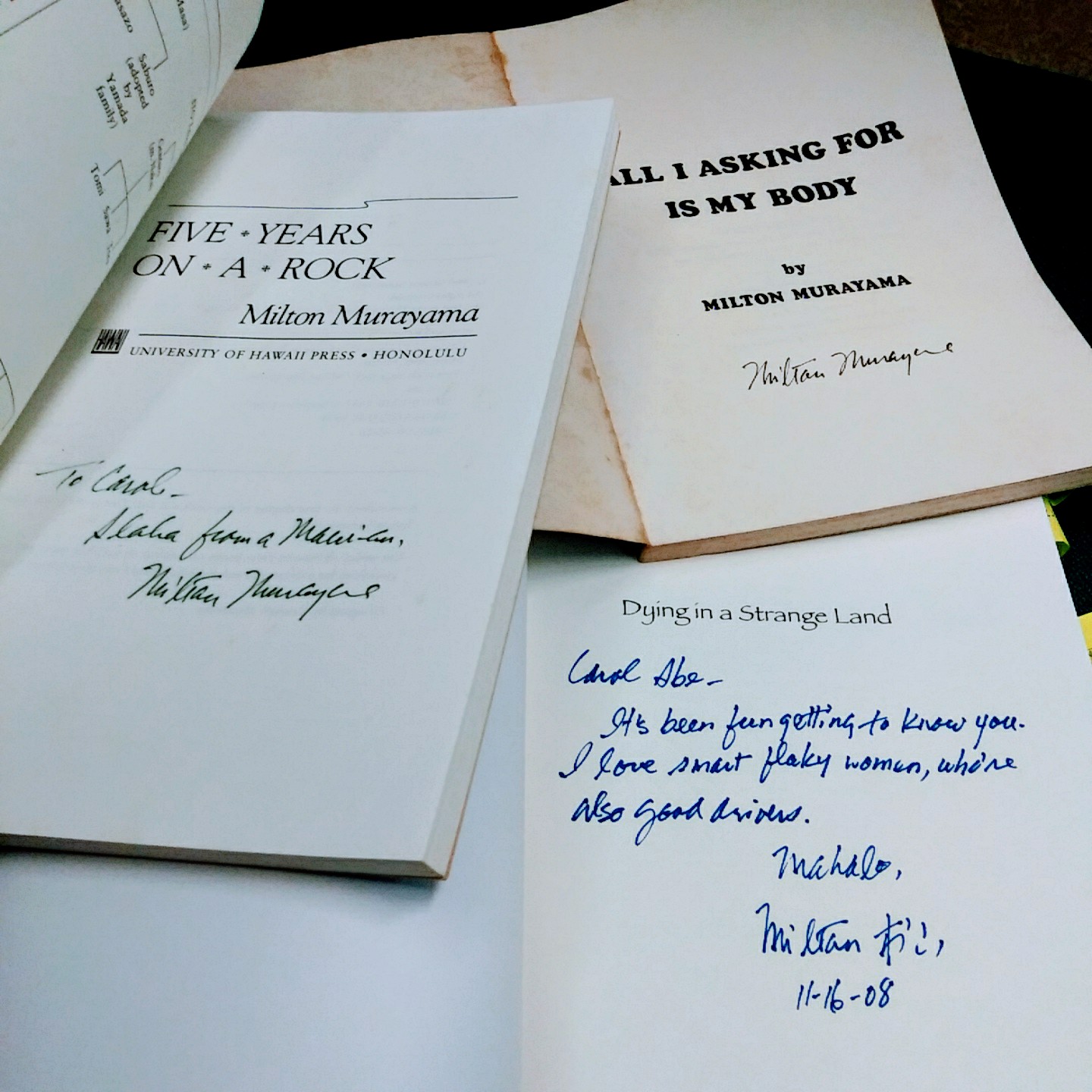 Look, who had directed a play of All I Asking. The program developed further by recruiting Arnold Hiura, Lee Cataluna, and one of our student employees, Tricia Tolentino, all tied together with Steve as emcee. (And, by rolling the dice, we obtained funding from SEED and Hawai‘i Council for the Humanities, including an honorarium for Milton.)
Look, who had directed a play of All I Asking. The program developed further by recruiting Arnold Hiura, Lee Cataluna, and one of our student employees, Tricia Tolentino, all tied together with Steve as emcee. (And, by rolling the dice, we obtained funding from SEED and Hawai‘i Council for the Humanities, including an honorarium for Milton.)
During their visit, I had chauffeured Milton and Dawn to four or five appearances, perhaps being a bit manic in my driving. At the end, I asked Milton to sign my copy of Dying in a Strange Land. We all laughed warmly as I read his inscription: “It’s been fun getting to know you. I love smart flaky women, who’re also good drivers.” It was my honor and pleasure to have been a tiny part of his life.
+++
Each of Milton’s novels can be read separately and not in sequence. Dying in a Strange Land is on sale now, at a very special price—click here to order.





